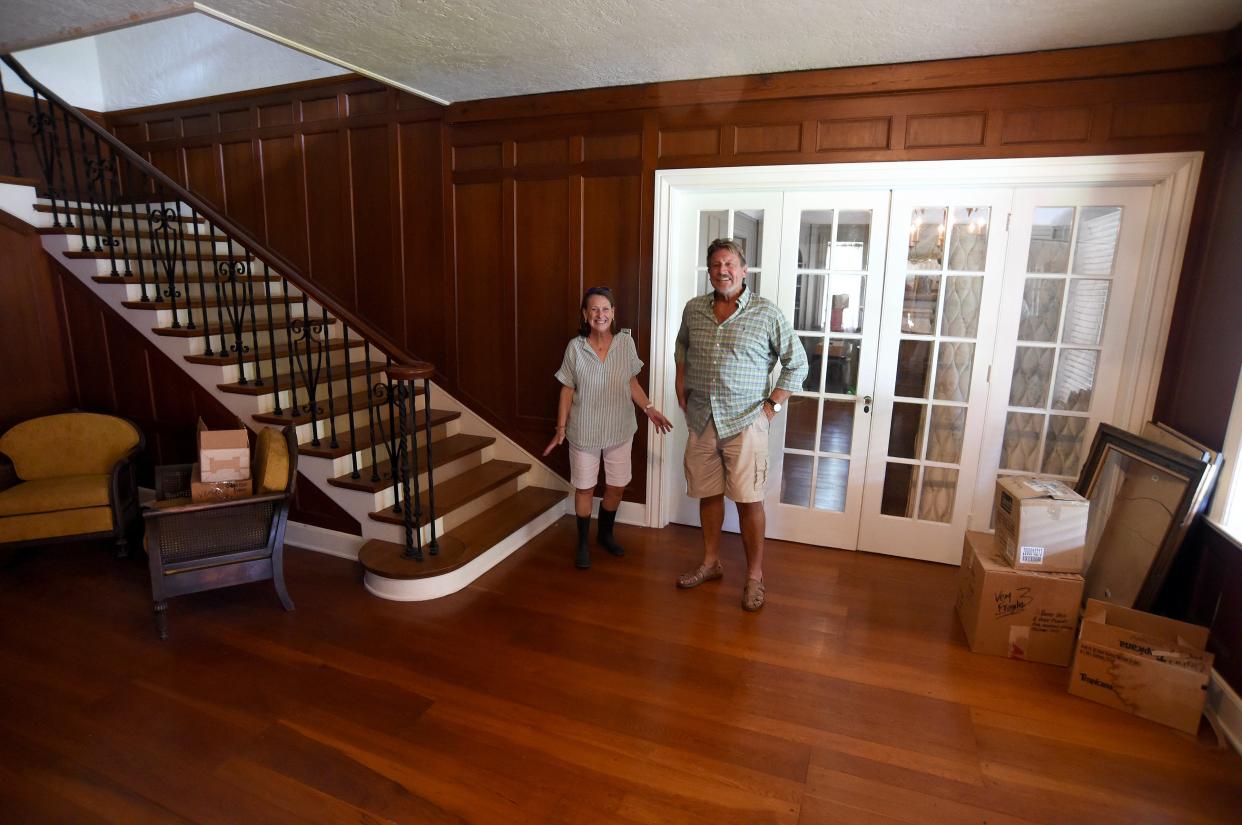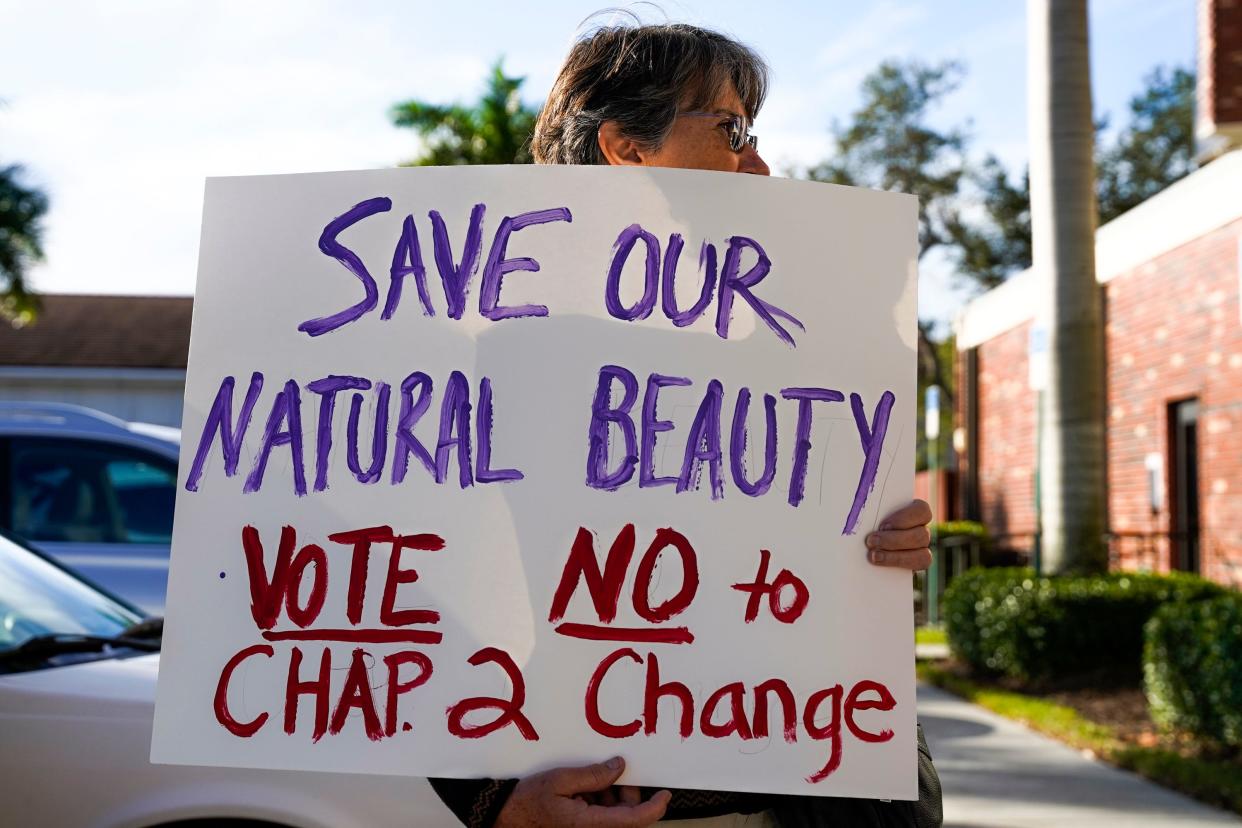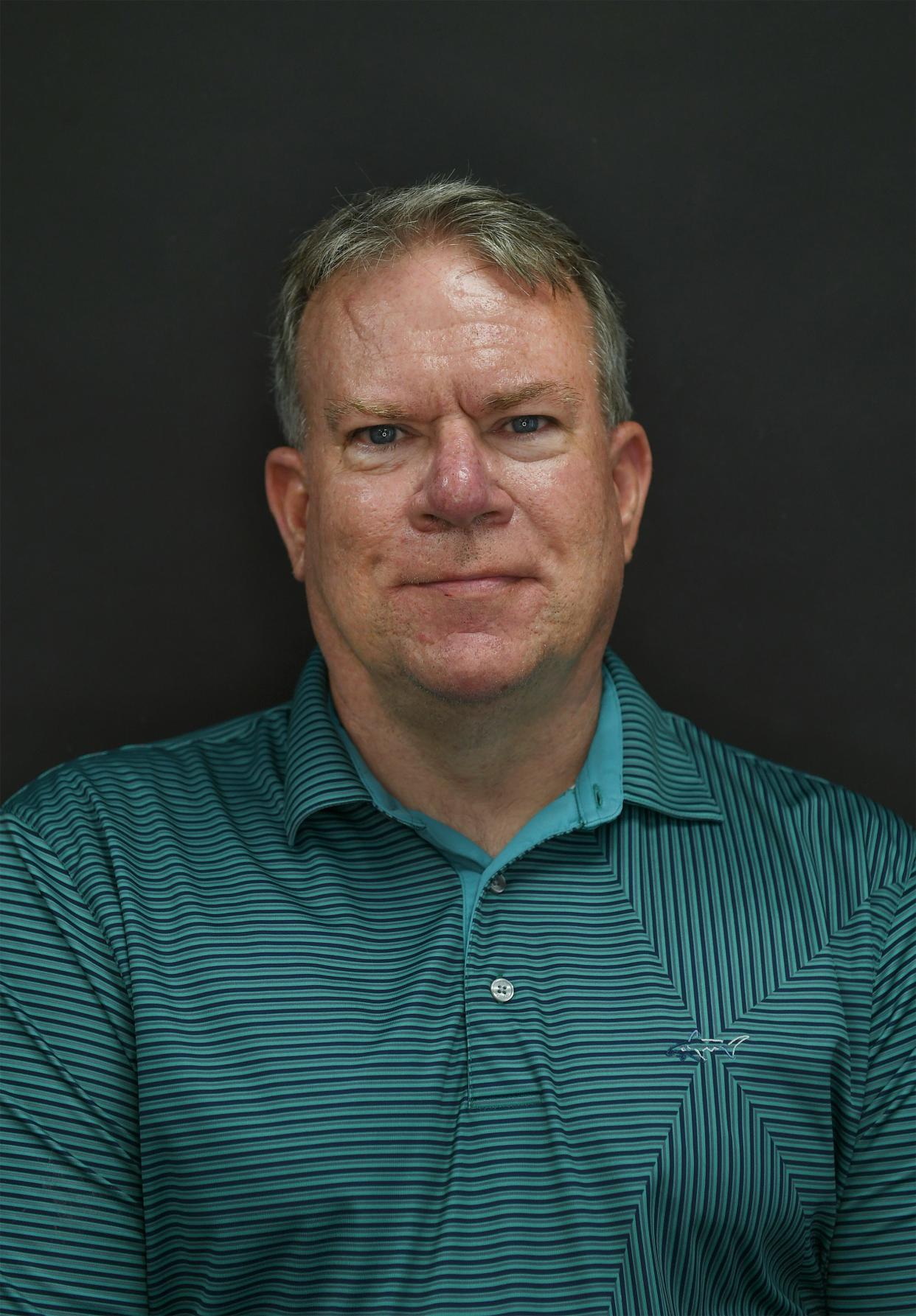How do you know when a Treasure Coast land-use case is over? When the developers have won.
It's been a little more than a month since the end of the NCAA men's and women's basketball tournaments. They have become beloved parts of the American sports calendar, thanks largely because small and somewhat obscure schools have chances to upset the larger, better-known colleges.
But imagine what a letdown it would be if, say, after Oakland University pulled a shocking upset over the University of Kentucky, NCAA officials had stepped in and ordered the game replayed so the heavily favored team would get another shot at victory.
That's comparable to what happened when the St. Lucie County Commission decided, in the wee hours of Wednesday morning, to reverse an earlier decision and approve plans for an apartment complex partially encircling the Fort Pierce area home of Crayon inventor Edwin Binney.
By a 3-2 vote in March, commissioners denied a rezoning request for Indrio Woods, an apartment complex planned near the intersection of Indrio and Taylor Dairy roads, for a variety of perfectly good reasons.
The proposed development isn't compatible with the surrounding rural area. Indrio Road, which would handle traffic to and from the apartments, is already overburdened with cars. Then there's the issue of a modern apartment complex being out of character with the Binney family's nearly century-old estate.
Yet apparently, after the commissioners made their decision, after months and months of public meetings, the developers threatened to sue. Or maybe they only hinted they might possibly sue. Whatever the case, commissioners got spooked enough to order a rehearing of the case Tuesday evening.
Everything was the same, except the outcome
As with the previous hearings, lots of residents showed up to speak against the change. Some were concerned the apartments would ruin the neighborhood's character. Quite a few were worried about protecting the historical value of Binney's home, which makes sense in light of the numerous civic contributions Binney made to Fort Pierce and the surrounding area during his life in Florida.
Rather than rehearing the case at the point it was scheduled on the agenda, commissioners decided to wait and discuss the Indrio Woods case at the tail end of their meeting.
Pro tip: Whenever elected officials want to move something to the end of the agenda, watch out. Whatever they want to happen, or think might happen, is probably not in the best interests of their constituents.
As happens in these situations, the number of people planning to speak on the issue dwindled as the evening turned into night and eventually morning. Still, a fair number of the project's opponents remained for the commission's discussion of that item, which continued well after midnight.
There wasn't really any new information presented. The developers agreed to reduce the total number of apartments, with a corresponding reduction in the number of parking spaces. They agreed to increase the landscaping screens between the apartments, the Binney estate and Indrio Road.
They also agreed to reserve at least 10% of the apartments for "workforce housing," meaning they would be affordable to a family of four earning $67,750 to $101,640 per year.
None of that qualified as an earth-shaking revelation. At the March meeting, commissioners had considered and rejected proposals to reduce the total number of units and make other changes to make the project a better fit with neighboring properties. It's normal for some give and take with applicants to occur during land-use cases.
In the end, the majority's consensus at the March meeting was that, even with modifications, the apartments just weren't a good fit for that neighborhood.
Was it an epiphany ... or just good political theater?

Of the five commissioners, only one changed her vote Wednesday morning. Jamie Fowler switched from a "no" to a "yes" vote on the rezoning request. Along with "yes" votes from commissioners Chris Dzadovsky and Linda Bartz, that gave the developers the three votes they need to proceed with their construction plans.
Commission chair Cathy Townsend and Larry Leet voted to deny the rezoning request at both meetings.
It wasn't clear what possessed Fowler to change her vote and I wasn't able to get in touch with her Wednesday afternoon.
Ultimately, it really doesn't matter what she would say. She could say the reduction in apartment units or the added landscaping buffers or any other argument the developers' representatives made was persuasive.
The bottom line is, once again, the citizens who rearranged their schedules to show up at meeting after meeting to voice their concerns about Indrio Woods lost. And, as is almost always the case with proposed land-use changes on the Treasure Coast, the developers won.
If none of the arguments matter, why keep doing this?

County commissioners and city council members often claim they have little choice but to approve zoning changes, or face potential litigation. That overlooks the sad reality that in America, just about anybody can sue for almost anything.
Just because someone files a lawsuit doesn't mean he or she will prevail in court. Given the one-sided nature of local land-use hearings, people opposing development projects have better chances of success in court than they do at the hearings held by their local city and county legislative bodies.
I'll ask this again: If cities and counties have no choice but to approve land-use changes any time they are requested, then what is the point in having land-use regulations in the first place? Let's just toss developers the keys to the bulldozers and let them do as they please.
Martin, St. Lucie are the same now

A year or two ago, I might have said this was less true in Martin County than in St. Lucie County. Then last week, the Martin County Commission granted a developer's request for a land-use amendment that has no planning policy rationale other than it's what the developer wanted to build an upscale housing subdivision.
Now, a land-use change seems every bit as likely to be approved in Martin County as St. Lucie County. And by likely, I mean almost certainly.
I'm not against all growth and development. I don't think most reasonable people are. However, I think most reasonable people can see there are limits and lines that should not be crossed when considering new projects.
The most disappointing part of the St. Lucie commission majority's decision is the message it sends to citizens. What the commissioners were saying, whether they intended to or not, was: "These developers are too powerful a political force to buck. It doesn't really matter what you citizens tell us, because even though you hold the power to toss us out of office, we don't think you're going to be mad enough about decisions like this or remember them long enough to matter."
Too wordy a message? OK, let me sum it up a different way: "No land-use case is truly over until the developers win."
This column reflects the opinion of Blake Fontenay. Contact him via email at bfontenay@gannett.com or at 772-232-5424.
This article originally appeared on Treasure Coast Newspapers: Why not approve apartments around Edwin Binney's Fort Pierce estate?
